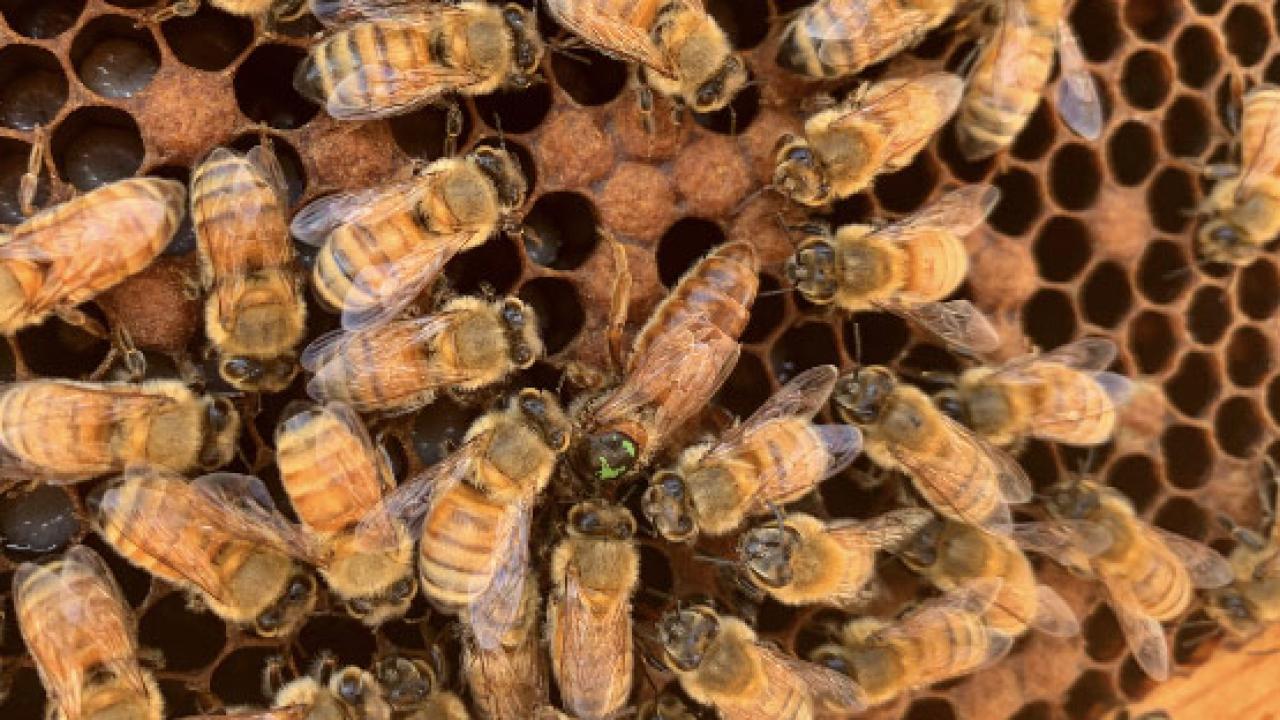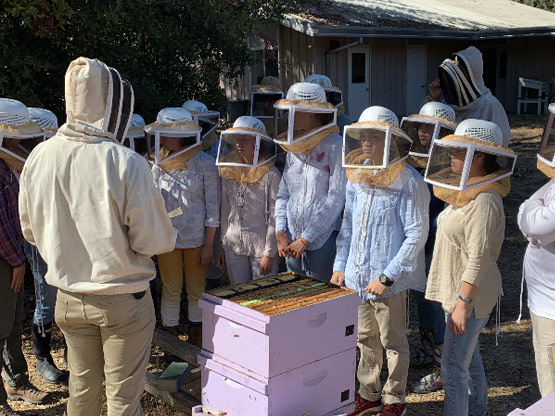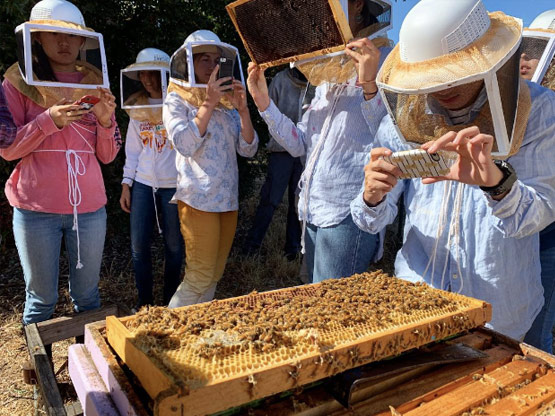
Julia Wentzel’s Practicum in Beekeeping Course at UC Davis
Though IAD students tend to travel to other parts of the world for their research, my project has kept me very close to home: I have been developing curriculum for a Practicum in Beekeeping course that was offered here at UC Davis during Fall Quarter 2018. With support from Jastro, I was able to purchase the equipment and resources I needed to attend trainings and gain the experience needed to effectively design the course.
The class itself was a huge success. We were hosted by the staff at the Harry H. Laidlaw Jr. Honey Bee Research Facility, where we worked closely with Dr. Elina L. Nino and facility manager Charley Nye in their apiary. We studied bee behavior and biology, learned about pest prevention and best practices for managing healthy hives, and discussed big-picture challenges facing pollinators in the modern agricultural landscape.

When it got too late in the year to work with bees directly, we were able to dig deeper into other topics, including best beekeeping practices for subsistence or low-income farmers, and alternative approaches to pollination services that do not depend solely on vulnerable honey bee populations.
Student feedback indicates that it was overall a very positive experience, and that they appreciated the experiential component of the class. Perhaps most telling of the course’s success: the registrar has just added it to the course catalog for Fall Quarter 2019!

Though the primary goal of this project was to implement a practicum in beekeeping that would be available to Davis students annually, my broader motivation was to gain experience in developing educational materials and infrastructure for cooperative extension programming by collaborating with my peers and the incredible faculty and staff at UC Davis. This project speaks to my passion for experiential learning opportunities, and offers a new opportunity for the university to invest in diverse educational approaches as part of a broader effort to reach students from all backgrounds and with all learning styles. Further, it creates a valuable new resource for UC Davis students in a world that is increasingly concerned with the future of honey bees and native pollinators, and their tremendous impact on conventional agriculture. I’m thrilled that this class will continue to be offered at Davis as a testament to the value of experiential education opportunities.